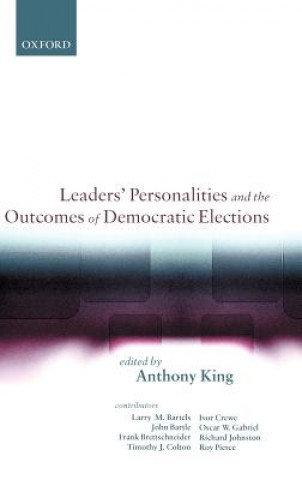
Kód: 04525422
Leaders' Personalities and the Outcomes of Democratic Elections
Autor Anthony King
The conventional wisdom purveyed by the press and television and accepted as true by most politicians is that elections throughout the democratic world are personal clashes between individual presidential candidates and party lead ... celý popis
- Jazyk:
 Angličtina
Angličtina - Vazba: Pevná
- Počet stran: 244
Nakladatelství: Oxford University Press, 2002
- Více informací o knize

Mohlo by se vám také líbit
-

Safety of Nanoparticles
2998 Kč -

Will Warburton
770 Kč -

Clients Driving Innovation
4443 Kč -

Good Old Age
852 Kč -

Spanish Bayonet
907 Kč -

Panzer der UdSSR
295 Kč
Darujte tuto knihu ještě dnes
- Objednejte knihu a zvolte Zaslat jako dárek.
- Obratem obdržíte darovací poukaz na knihu, který můžete ihned předat obdarovanému.
- Knihu zašleme na adresu obdarovaného, o nic se nestaráte.
Více informací o knize Leaders' Personalities and the Outcomes of Democratic Elections
Nákupem získáte 626 bodů
 Anotace knihy
Anotace knihy
The conventional wisdom purveyed by the press and television and accepted as true by most politicians is that elections throughout the democratic world are personal clashes between individual presidential candidates and party leaders. Almost everyone assumes that election outcomes are frequently determined by the major candidates' personal characteristics. In the United States, Al Gore in 2000 came over as aloof and arrogant-and failed to win his expected victory. In Great Britain, Tony Blair in 2001 came across as dynamic and personable-and won a second term. So personal charisma appears to yield electoral success. This study by eminent scholars on both sides of the Atlantic suggests that the conventional wisdom is wrong. Survey research conducted in recent decades indicates that relatively few voters are swayed by candidates' personal characteristics. Far more important are voters' longstanding party loyalties, their views on issues, and their judgments of how well or badly presidents and parties have performed-or will perform-in office. The votes of even the few electors who are swayed by candidates' personalities usually cancel each other out. As a result, election outcomes are seldom decided by individual candidates' personal images. Occasionally, but not often. Ronald Reagan and Bill Clinton owed their election victories more to economics than to charm. At the end of World War II, the charismatic Winston Churchill lost the 1945 British general election; the colorless Clement Attlee won. Chancellor Helmut Kohl remained in power in Germany for a generation-but was never personally popular. Russian voters reckoned that Boris Yeltsin could not hold his drink- but nevertheless elected him. The implications of the authors' analyses are profound. They suggest that modern democratic politics is not nearly as candidate-centered and personality-oriented as is often supposed. They also suggest that parties' policies and their performance in office usually count for far more than the men and women they choose as their leaders. Not least, the authors suggest that the efforts of political consultants, advertising agencies, and spin doctors are often misdirected.
 Parametry knihy
Parametry knihy
Zařazení knihy Knihy v angličtině Society & social sciences Politics & government Political structure & processes
6263 Kč
- Plný název: Leaders' Personalities and the Outcomes of Democratic Elections
- Autor: Anthony King
- Jazyk:
 Angličtina
Angličtina - Vazba: Pevná
- Počet stran: 244
- EAN: 9780198297918
- ISBN: 0198297912
- ID: 04525422
- Nakladatelství: Oxford University Press
- Hmotnost: 536 g
- Rozměry: 241 × 166 × 18 mm
- Datum vydání: 21. March 2002
Oblíbené z jiného soudku
-

Democracy in America
136 Kč -

The Prince
90 Kč -

CONVERSATIONS WITH MYSELF
511 Kč -
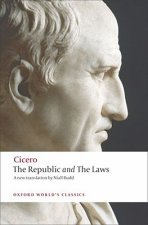
Republic and The Laws
223 Kč -

Stalin
499 Kč -

Anarchy, State, and Utopia
584 Kč -

Prince
223 Kč -

The Prince
90 Kč -

Weapons of Math Destruction
323 Kč -

Prince
223 Kč -

How the World Works
464 Kč -

Prince
357 Kč -

JFK and the Unspeakable
410 Kč -

The Road to Unfreedom
312 Kč -

Red Notice: How I Become Putins No 1 Enemy
323 Kč -

Twilight of Democracy
303 Kč -

From Dictatorship to Democracy
223 Kč -

Signal and the Noise
393 Kč -

Audacity of Hope
303 Kč -

Social Origins of Dictatorship and Democracy
715 Kč -

State in the Third Millennium
1057 Kč -

How to Stand Up to a Dictator
303 Kč -

Oxford IB Diploma Programme: Authoritarian States Course Companion
1239 Kč -
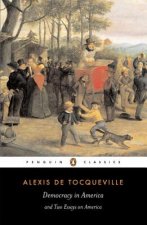
Democracy in America
340 Kč -

Prince
196 Kč -

Theory U: Leading from the Future as It Emerges
1046 Kč -

How Democracy Ends
290 Kč -

World As It Is
334 Kč -

Democracy Incorporated
597 Kč -
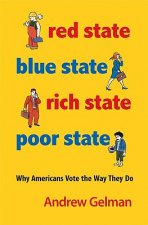
Red State, Blue State, Rich State, Poor State
611 Kč -

Tyranny of Merit
303 Kč -

Utopia
130 Kč -

Stalin, Vol. I
542 Kč -

Concise Oxford Dictionary of Politics and International Relations
384 Kč -

Future of Freedom
425 Kč -

Book of Lord Shang
1001 Kč -

Winter Is Coming
323 Kč -

Republic
218 Kč -

Orban
512 Kč -

Likewar: The Weaponization of Social Media
382 Kč -

Obama: An Intimate Portrait
1111 Kč -

Prince
343 Kč -

How to Run a Country
367 Kč -

Road to Somewhere
276 Kč -

Hitler
542 Kč -
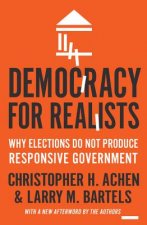
Democracy for Realists
500 Kč -

Mrs. Kennedy and Me
390 Kč -

Oxford Handbook of Comparative Constitutional Law
1565 Kč -

Prince
433 Kč
Osobní odběr Praha, Brno a 12903 dalších
Copyright ©2008-24 nejlevnejsi-knihy.cz Všechna práva vyhrazenaSoukromíCookies



 Vrácení do měsíce
Vrácení do měsíce 571 999 099 (8-15.30h)
571 999 099 (8-15.30h)